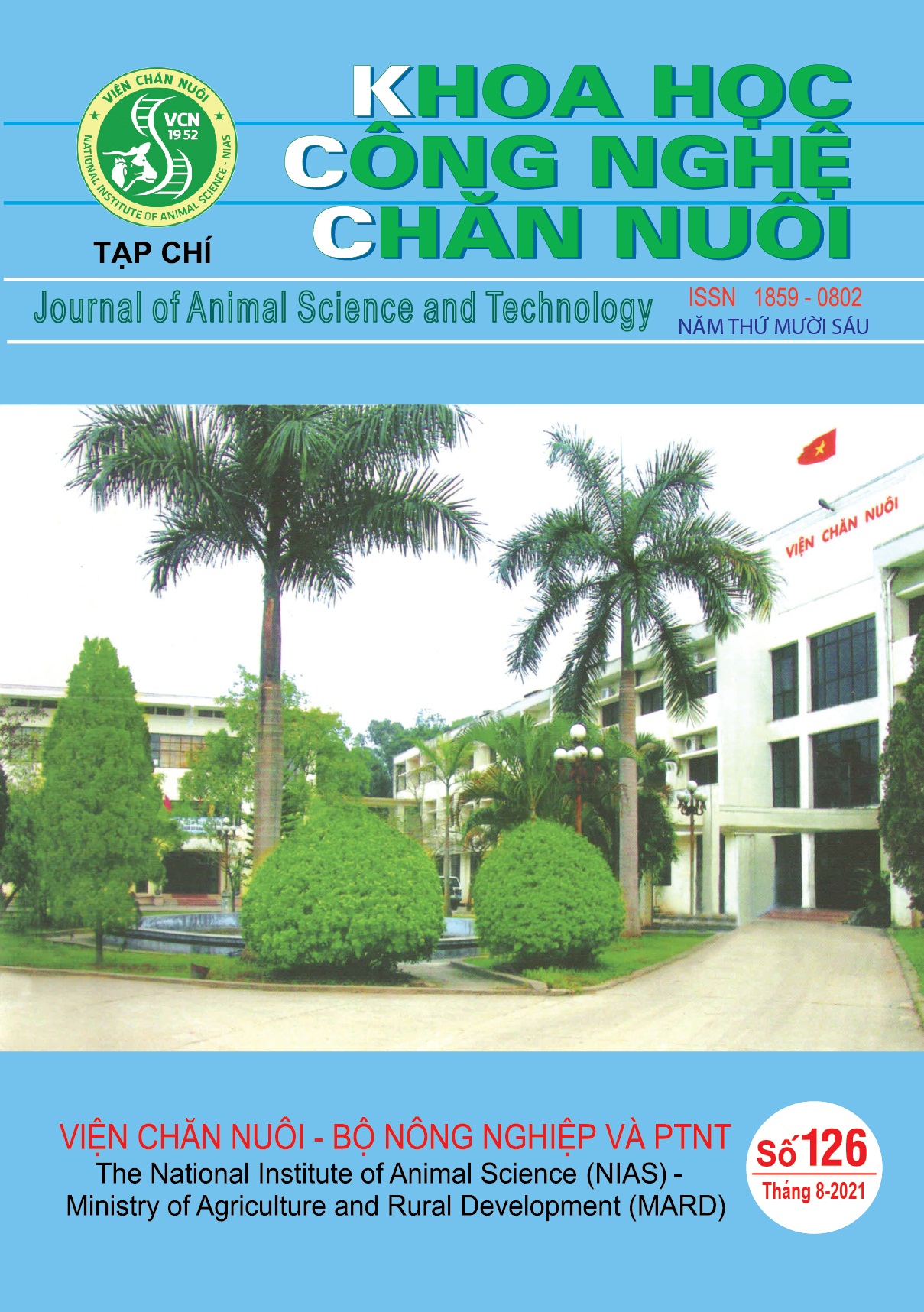Effects of coconut oil in diets on nutrient intake, nitrogen retention and rumen ecology on growing lambs
A study was carried out to investigate the effect of coconut oil levels in the diet on feed utilization, nitrogen retention and rumen parameters of growing lambs for a recommendation of further applications. Five male lambs with the average live weight of 16.0±1.58 kg (Mean ± SE) were arranged a Latin square with 5 treatments and 5 periods. The treatments included 5 levels of coconut oil supplementation in diets (DM basis) being 0, 1, 2, 3 and 4% corresponding to DD0, DD1, DD2, DD3 and DD4 treatments. The experimental period was 14 days including 7 days for dietary adaptation and 7 days for samplings. The results showed that daily DM, OM and EE intakes of lambs was gradually reduced (P<0.05), however the metabolizable energy (ME) intake was significantly improved (P<0.05) when increasing the levels of coconut oil. The nutrient digestibilities and nitrogen retention (g/head/day) was not different (P>0.05) among the treatments. Rumen N–NH3 and total VFAs gradually decreased with increasing coconut oil supplementation (P <0.05), while the daily weight gain (g) was significantly different among the treatments (P<0.05) and was 101, 109, 114, 106 and 103 g for treatments DD0, DD1, DD2, DD3 and DD4, respectively. The conclusion was that increasing levels of coconut oil in diets from 0 to 4% improved metabolizable energy intake and daily weight gain, however the reductions of DM, OM and EE intakes; and rumen N-NH3 and total VFAs were found. At a dietary level of 2% coconut oil in growing lambs could be prospectively recommeneded.

